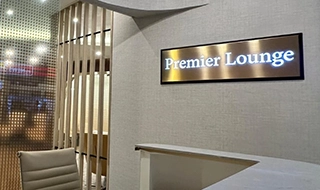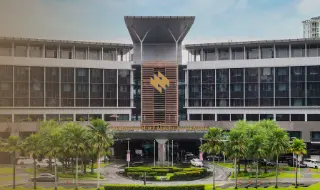What is Nephrology?
Nephrology, a specialised field within internal medicine, focuses on the diagnosis and treatment of kidney-related conditions.
Nephrologists, or
kidney specialists, manage a wide range of kidney diseases, including inherited disorders like polycystic kidney disease, where cysts develop in both kidneys, autoimmune conditions that cause the body to attack its own tissues, and kidney tumors. Their expertise ensures comprehensive care for maintaining kidney health and addressing complex renal issues.
One of the Best Hospital for Kidney Doctor in Kuala Lumpur, Malaysia
Chronic Kidney Disease (CKD)
The number of patients with chronic kidney disease (CKD) are increasing each year with the most common causes of CKD being diabetes and high blood pressure.
Common causes include autoimmune diseases such as systemic lupus erythematous which usually affect younger patients who characteristically present with symptoms such as joint pains, skin rash, mouth ulcers and fever. The key to treatment of CKD is early detection and patients with illnesses that commonly affect the kidneys should therefore have their kidney function and urine tested by a kidney doctor regularly.
CKD ranges in severity from Stage-I when the patient may be noted to have asymptomatic protein loss or blood in the urine (frequently during a routine medical) to the more advanced Stage-V when the kidneys are severely damaged and treatment with renal replacement therapy (RRT) becomes necessary.
Diagnosis and Treatment of Chronic Kidney Disease (CKD)
The gold standard for the diagnosis of CKD is a kidney biopsy which in addition to determining the cause of CKD will also help to guide treatment strategies. This may include immunosuppression for autoimmune related diseases and plasma exchange or double filtration plasmapheresis for vasculitis and related disorders. The routine availability of such technologically demanding services together with our emphasis on a multidisciplinary or holistic approach to patient care means that we are well supported by colleagues in other disciplines together with support from para-clinical services such as dedicated renal dieticians, renal pharmacists, physiotherapists, transplant coordinators, and nurse counselors.
Types of Renal Replacement Therapy (RRT)
1) Haemodialysis, Haemodiafiltration
For patients with CKD Stage-V who require RRT, Prince Court Medical Centre (PCMC) is particularly proud of the achievements of our Dialysis Centre which is unique in that it offers a full and comprehensive range of services that CKD patients may benefit from. Patients may choose to have conventional haemodialysis (HD) using either low or high flux single use dialyzers (we practice exclusive single use policy), or on-line high volume haemodiafiltration (HDF) which may be particularly beneficial in patients with heart disease or require improved clearance of larger molecular weight waste products that has recently been shown to be accompanied by superior patient survival compared to patients choosing conventional HD. A unique and popular feature of our out-patient haemodialysis facility is the use of only beds for dialysis which our patients find much more comfortable and preferable compared to using dialysis chairs.
For critically ill patients in Intensive Care Unit (ICU) or High Dependency Unit (HDU), we offer continuous renal replacement therapy (CRRT) and slow long extended daily dialysis (SLEDD). These are modalities of renal replacement therapy for patients whose low blood pressure are unable to support conventional HD or HDF.
2) Peritoneal Dialysis
The second RRT option is aimed at patients who are not suitable for HD or prefer an alternative home based therapy. An outpatient peritoneal dialysis (PD) program was therefore set up in 2012 with our own in-house PD training program supported by specialist PD nurses. Services including counseling, surgical insertion of Tenckhoff catheter, training for continuous ambulatory peritoneal dialysis (CAPD), automated peritoneal dialysis (APD) and 24-Hour hotline support for PD patients are all provided in-house as part of our comprehensive and all embracing dialysis services.
3) Renal Transplant
The third option for patients requiring RRT is a kidney transplant which is widely recognised as offering better survival and improved quality of life compared to treatment with dialysis. Kidney transplant is another area where PCMC is particularly proud to have contributed uniquely and substantially in the field of transplantation by pioneering transplantation across blood groups, otherwise known as ABO incompatible transplantation. The kidney transplant program in PCMC was first established in March 2009 and since then the number of living related transplants performed in PCMC have increased year on year and we have now performed more than 120 kidney transplants. Outcomes are good with patient and graft survival of > 95% at one year which is similar to that reported by internationally recognised and established transplant centres worldwide.
The success of our kidney transplant program was accompanied by the pioneering development of ABO incompatible kidney transplant program with the first such transplant in Malaysia performed here in PCMC on 01 July 2011. Over the past 13 years, a total of 20 ABO incompatible kidney transplants were performed in PCMC, with 100% three year patient and graft survival to date. We are therefore proud and honoured to have contributed to the development of kidney transplant services here in Malaysia by pushing boundaries, achieving milestones with our pioneering services in ABOi kidney transplant and establishing services expected of a tertiary hospital of international specification.
Summary
The success of our renal services in particular kidney transplantation have attracted patients from other parts of the world although kidney transplants in PCMC are currently limited to living related or emotionally related (spousal) transplants in keeping with local Ministry and International guidelines. The most notable of our overseas clients is the Brunei Government who started sending patients to PCMC for their kidney transplants in 2011.
We therefore have the full and comprehensive range of renal services uniquely and exclusively available only in PCMC. Our priority now is to expand on our achievements in terms of both quality and quantity so that a larger patient pool locally and internationally may benefit from our expertise.
Summary of Renal Services
1) Screening for and early detection of chronic kidney disease
2) Treatment of chronic kidney disease including immunosuppression for autoimmune related diseases
3) Plasma exchange for vasculitis and related disorders
4) Monitoring for complications of chronic kidney disease and efficacy of treatment
5) Interventional nephrology including vascular access creation and treatment of access complications
6) Haemodialysis, Haemodiafiltration, Continuous Renal Replacement Therapy, Slow Long Extended Daily Dialysis
7) Chronic ambulatory peritoneal dialysis, automated peritoneal dialysis
8) Laparoscopic donor nephrectomy
9) Living related and living emotionally related kidney transplantation
10) ABO compatible and ABO incompatible kidney transplantation
























